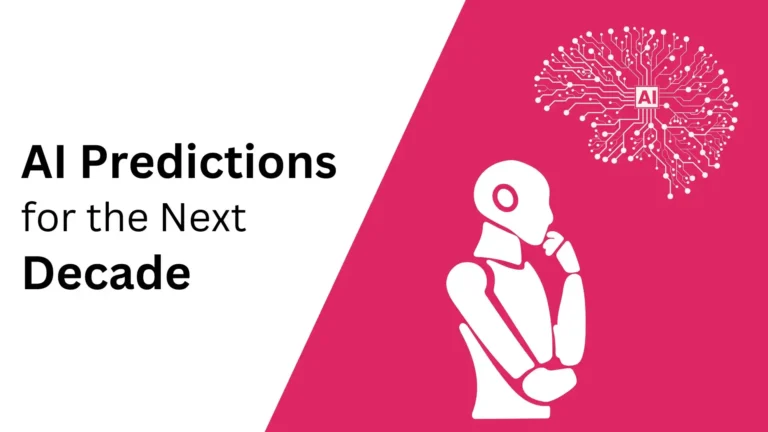AI and Privacy Concerns, Who Owns Your Data
AI and Privacy Concerns, Artificial Intelligence (AI) has transformed the way we live, work, and interact. From personalized recommendations on e-commerce platforms to advanced medical diagnoses, AI systems rely heavily on vast amounts of data to function effectively. However, this dependence on data raises a critical question: Who owns your data?
In a world where personal information is collected, analyzed, and monetized, privacy concerns have become more prominent than ever. Many individuals remain unaware of how their data is being used or who controls it. This article delves into the relationship between AI and data privacy, exploring the ownership dilemma and potential solutions to safeguard user information.

How AI Uses Data
AI systems thrive on data, which serves as their foundation for learning and decision-making. Whether it’s recommending a song on a streaming platform or predicting weather patterns, AI requires extensive datasets to train its algorithms and improve its performance.
Data collection in AI comes from various sources, including:
For instance, when you use a social media platform, AI algorithms analyze your likes, comments, and shares to suggest content tailored to your interests. Similarly, AI-powered virtual assistants like Siri or Alexa process voice commands to provide relevant responses.
This extensive use of data enables AI to deliver personalized experiences and optimize operations. However, it also exposes users to privacy risks, particularly when data is collected without explicit consent or is mishandled by companies.
The Ownership Dilemma: Who Owns Your Data?
The question of data ownership has become a central issue in the AI-driven era. At its core, data ownership refers to the rights and control over personal or organizational data. But in practice, this concept becomes complex due to the involvement of multiple stakeholders, including individuals, companies, and third-party service providers.
When users interact with digital platforms, they often provide their data in exchange for services—knowingly or unknowingly.
For example:
The Role of Companies
Once data is collected, companies typically claim ownership over it. They use it to train AI models, improve services, or monetize insights through targeted advertising. Many terms of service agreements grant these companies the right to use, store, and share data, leaving users with limited control.
The Involvement of Third Parties
The data ownership landscape becomes even murkier when third parties enter the picture. Cloud service providers, data brokers, and marketing agencies often handle user data, creating additional layers of complexity. This distribution of data among multiple entities further erodes transparency and accountability.
Ultimately, while users provide their data, the lack of clear legal frameworks often shifts control to corporations, raising significant ethical and legal concerns. Who truly owns the data in such cases—its creator, the platform that collects it, or the AI that processes it?
Privacy Concerns in AI
The widespread use of AI has brought privacy concerns to the forefront. As AI systems become more advanced, the potential for misuse of personal data increases, often leaving individuals vulnerable to violations of their privacy. Below are some of the most pressing privacy concerns associated with AI:
Unauthorized Data Access
AI systems often process sensitive personal data. If these systems are not secured, they can become a target for hackers, leading to unauthorized access to private information. For example, breaches in healthcare databases powered by AI can expose patients’ medical records, putting them at risk of identity theft and other crimes.
Data Breaches
AI systems rely on centralized storage of massive datasets, which can make them attractive targets for cybercriminals. High-profile incidents, such as the breaches of social media platforms and e-commerce giants, highlight how vulnerable centralized data systems can be. These breaches not only compromise user data but also erode trust in AI technologies.
Misuse of Personal Information
Some companies use AI to analyze and monetize user data without proper consent. For example, algorithms might profile users to deliver hyper-targeted ads, but such profiling can also reinforce stereotypes or manipulate consumer behavior. This kind of misuse often occurs behind the scenes, leaving users unaware of how their data is being utilized.
Lack of Transparency
AI systems often operate as “black boxes,” meaning their decision-making processes are not fully transparent. This lack of transparency makes it difficult for users to understand how their data is being used and whether their privacy is being respected.
Real-World Examples
These concerns highlight the urgent need for stricter regulations and robust privacy protection measures to safeguard user data in the age of AI.
Legal and Ethical Perspectives on Data Ownership
Data ownership is not just a technical or operational challenge; it also raises significant legal and ethical questions. As AI technologies advance, the boundaries of data rights and responsibilities remain unclear, creating a pressing need for regulatory frameworks and ethical guidelines.
Existing Data Protection Laws
Several regions have introduced laws to protect user data and regulate its collection and usage:
While these regulations have set a precedent, they are not universally applied, leaving gaps in global data protection.
Ethical Challenges in AI
AI-powered systems often test the boundaries of ethics, especially when it comes to privacy:
Global Challenges in Enforcement
The decentralized nature of data storage and AI systems complicates enforcement. A company based in one country may handle data from users worldwide, creating conflicts between local and international laws. For example, an AI system trained on European user data must comply with GDPR even if its operations are based elsewhere.
Striking a balance between innovation and privacy protection requires collaborative efforts between policymakers, technology companies, and civil society. Establishing clear legal frameworks and promoting ethical AI development can help address these challenges effectively.
Strategies to Protect Your Data

As AI continues to rely on data, individuals and organizations must adopt proactive measures to protect sensitive information. While privacy concerns can feel overwhelming, there are practical steps that both users and companies can take to safeguard data:
For Individuals
Understand Terms and Conditions
Before using any AI-powered service, take the time to review its terms of service and privacy policy. Look for details about how your data will be collected, used, and shared. If anything seems unclear or invasive, reconsider sharing your information.
Limit Data Sharing
Share only the information necessary to use a service. Avoid providing excessive personal data when signing up for online platforms. For example, if a service doesn’t require your phone number, don’t provide it.
Use Privacy Tools
Encryption tools, virtual private networks (VPNs), and secure browsers can help protect your online activity. Additionally, consider using browser extensions that block tracking cookies and ads.
Manage Permissions
Regularly review app and device permissions. Many AI-powered applications request access to unnecessary data, such as location or contact lists. Restrict permissions to only what’s essential.
For Companies
Transparency in Data Practices
Companies must ensure clear communication about their data collection and usage policies. Providing users with straightforward explanations and real-time updates fosters trust.
Implement Robust Security Measures
AI systems should be equipped with advanced encryption protocols and secure storage solutions to minimize the risk of breaches. Regular security audits and updates are essential to stay ahead of evolving threats.
Adopt Privacy by Design
Privacy considerations should be integrated into the AI development process from the outset. This includes minimizing data collection, anonymizing datasets, and using federated learning where possible.
Collective Efforts for Protection
Collaboration between governments, tech companies, and users is crucial to creating a safer digital ecosystem. Initiatives like data literacy programs can empower individuals to make informed decisions about their privacy, while stricter regulations can ensure that organizations uphold ethical standards.
The Future of AI and Data Privacy
As AI continues to evolve, data privacy will remain a crucial issue. However, emerging trends show potential for balancing innovation with privacy protection:
Global AI Regulation
Countries are implementing AI regulations, like the EU’s AI Act, to set standards for data protection and ethical AI use, ensuring privacy rights are safeguarded.
Privacy-Preserving AI
Technologies like Federated Learning and Homomorphic Encryption allow AI to process data securely without exposing sensitive information, improving privacy while maintaining effectiveness.
Ethical AI Practices
As privacy concerns grow, companies will face increased pressure to incorporate transparency, user consent, and privacy protections into AI design, promoting ethical development.
Consumer Data Control
Decentralized technologies like blockchain could give users more control over their data, allowing them to decide who accesses it and how it’s used in AI systems.
Collaborative Efforts
Governments, tech companies, and consumers will need to work together to address privacy challenges, ensuring that AI evolves responsibly while prioritizing data protection.
Conclusion
As AI technology advances, the ownership and control of data become increasingly complex. While AI offers tremendous potential, it also presents significant privacy and security concerns. The challenge lies in balancing the power of AI with robust data protection.
Legal frameworks, privacy-preserving technologies, and ethical AI development are crucial in safeguarding personal data. Achieving this balance requires collaboration between governments, tech companies, and users. The future of AI and data privacy depends on clear regulations, transparency, and responsible practices, ensuring privacy is upheld without hindering innovation.
In conclusion, maintaining this balance will necessitate continuous cooperation, the development of secure technologies, and a commitment to ethical AI deployment, ensuring that AI benefits society while protecting individual privacy.






